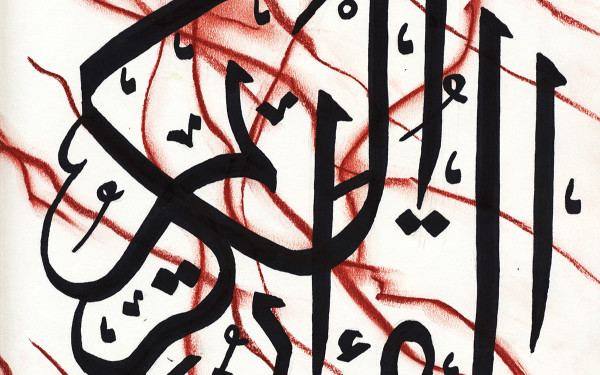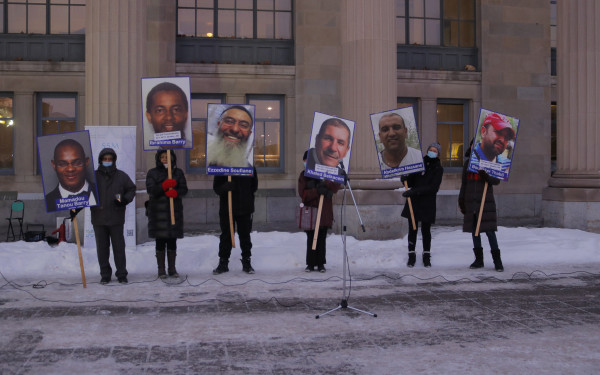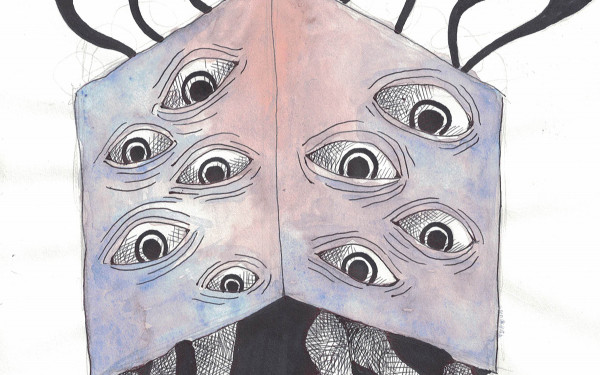Solidarity With Our Muslim Brothers and Sisters
There have been a rising number of hate crimes toward the Canadian Muslim community in recent years.
Most notably, the shooting that occurred at the Centre Culturel Islamique de Quebec, resulting in the deaths of Mamadou Tanou Barry, Abdelkrim Hassane, Khaled Belkacemi, Aboubaker Thabti, Azzeddine Soufiane and Ibrahima Barry—may they rest in peace.
A vigil was held for the victims and their families in Montreal on the following day, gathering over a thousand attendees. A slew of posts were also made on virtually every multi-media platform demonstrating remorse and love for the Muslim community in Canada, and around the globe. However, I—as a Christian and citizen of Montreal—began to ask myself if this was really enough.
Discrimination toward the Muslim community can be seen every day on social media, perpetuating the Islamophobia that persists in the Western world. Hate crimes in the United States are frequently being reported in the news, but Canadians tend to feel disconnected from it, separated by a border. However, this most recent attack has shaken Canada to its core, and snapped us to the reality that Canadians have been trying to ignore for the longest time—Islamophobia is indeed happening in our own country as well.
Some may blame the climate of discrimination in Canada on the failed Charter of Values in 2014—which attempted to enforce secularism through the removal of religious symbols from public service establishments, including the hijab, the niqab, the turban and the kippah. However, Christian symbols were largely exempt.
Others may point fingers at the United States, blaming President Trump’s immigration ban on seven Muslim countries for 90 days.
Whatever the case may be, the facts remain the same—institutionalized racism, and systemic Islamophobia is woven into Canadian as well as Quebec society. Attacks are happening in our own neighborhoods.
On Feb. 2, the same day the first funeral was being held in Montreal for three of the victims from the shooting, there was an incident of vandalism on a mosque located in Montreal’s Pointe-Saint-Charles neighborhood. According to police, a window was smashed and the building was egged.
“We were not expecting that, on the same day,” Musabbir Alam, co-founder of the Canadian Muslim Alliance, told CBC News in a statement on the incident. “On the one side, we’re actually celebrating solidarity, and on the other side, this is happening.”
Despite the large amount of support being shown by “Muslim allies” through social media and attending vigils, these attacks are still taking place, and are occurring with a higher frequency.
Sania Malik, a Concordia student and writer for the online publication, mvslim, wrote in the aftermath of the shooting that “this is not the time to be silent, to lean on euphemisms, but rather the time to call hate, hate. Condemn violence and identify its roots. Highlight the growing sense of xenophobia and racism and then deliver actionable solutions.”
Malik continued, “I want to go to a protest where I don’t just hear about Canada’s love and respect for diversity; I want to hear something actionable, […] that will spur change.”
So, what can non-Muslims do to become better allies, and hopefully decrease these acts from happening?
Sarah Boumedda, a student at Concordia University, suggests that the first step would be to learn about Islam, rather than discriminating against a religion without understanding it—or, alternatively, “showing support” and not understanding what you are supporting.
“I’m not saying people should rush to the bookstore and buy a copy of the Quran and dissect its every word, but maybe just ask a Muslim about it,” Boumedda said. “Once you know more about the religion, act towards raising awareness about it. Show that we’re not monsters; we’re normal people with normal lives and interests just like any other Canadian or human being.”
Since Sunday, there have been a lot of acts of solidarity, “which is absolutely heartwarming,” Boumedda said. “But we need to acknowledge that there is a problem of Islamophobia in Quebec.”
In order to become better allies, we must increase societal exposure to Muslims in order to humanize the community. This can be done through social media, or in person.
Bilal Abdul Kader, the founder and president of the As-Salam Mosque and the Al-Madinah Center, said Muslim communities came to Canada to have stability, equity, fairness, and constitutional rights. “The best support that can be given is to deal with any Muslim (man) and Muslimah (woman) according to their [own] skills, merits, and attitudes,” wrote Abdul Kader in an email.
According to Abdul Kader, the greatest support for Muslim women is to interact with them naturally, with no aggression or pity. They just need a smile and a quick chat instead of harsh regards or a look of pity.
Assurance from peers that racism does not have a place in Quebec will help greatly, said Abdul Kader. Learn about Islam from the Quran, Abdul Kader suggests, or directly from Muslim people and its authentic traditions rather than what is broadcasted on social media. Exaggerated support and exaggerated oppression are both harmful, Abdul Kader further explained.
On Tuesday, Jan. 31, Montreal police chief Philippe Pichet stated that there have been 14 reports of hate crimes in the city since the Quebec City mosque shooting.
It is imperative to educate ourselves on systemic Islamophobia, and then educate others on the subject. Through this realization, real action and change will be on its way. Spreading awareness of the hate crimes conducted toward people in our communities will keep the struggle alive.
As Canadians, as human beings, we cannot sweep these attacks under the rug. We cannot ignore the rising Islamophobia in Quebec. We must deal with the problem head on. Lest we forget.






